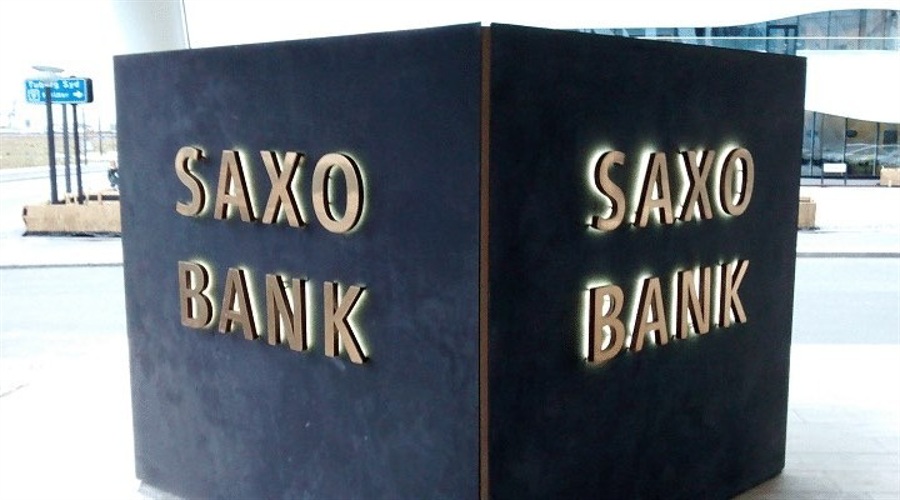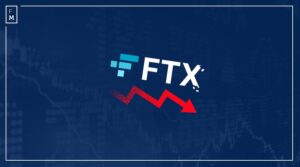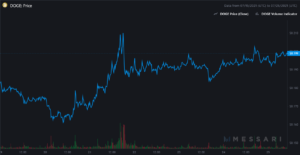
Saxo Bank witnessed a decline in foreign exchange (forex) trading in July as the monthly volume declined to $112.9 billion, compared to $119.5 billion in the previous month. That was a month-over-month decline of 5.5 percent. The FX demand last month also declined marginally by 2.5 percent year-over-year.
However, the daily average volume of FX trading in June and July remains identical at $5.4 billion. Compared with July 2022, the latest figure came down marginally from $5.5 billion.
Apart from forex, Saxo also offers trading services with several other popular asset classes. Trading demand for all the other asset classes also declined, dragging the total monthly trading volume on the platform down to $371.9 billion from $391.7 billion in July. However, the overall trading volume increased significantly by almost 15.5 percent.
Demand for equities remained on top of Saxo’s platform, with a monthly trading volume of $222.1 billion. While the equities demand dropped from $233.5 billion in June, it jumped from $166.2 million in July 2022.
The monthly volume with commodities came in at $29.6 billion, down from $32.1 billion in the previous month, and fixed income came in at $7.3 billion, an increase from $6.6 billion.
A Global Trading Platform
Although headquartered in Denmark, Saxo has a global presence as it operates in many markets with several local entities. The platform also offers crypto instruments in some non-European markets; however, it does not disclose those metrics on a regular basis.
In an order last month, the Danish Financial Supervisory Authority (FSA) asked Saxo to dump its cryptocurrency holdings, noting that the multi-asset broker’s trading in digital assets for its own accounts falls outside the investment bank’s “lawful area of activity.”
Meanwhile, Saxo Bank received the official designation as a Systemically Important Financial Institution (SIFI) from the FSA, making it the ninth such company in the country. Now, it has to comply with stringent capital requirements.
Saxo Bank witnessed a decline in foreign exchange (forex) trading in July as the monthly volume declined to $112.9 billion, compared to $119.5 billion in the previous month. That was a month-over-month decline of 5.5 percent. The FX demand last month also declined marginally by 2.5 percent year-over-year.
However, the daily average volume of FX trading in June and July remains identical at $5.4 billion. Compared with July 2022, the latest figure came down marginally from $5.5 billion.
Apart from forex, Saxo also offers trading services with several other popular asset classes. Trading demand for all the other asset classes also declined, dragging the total monthly trading volume on the platform down to $371.9 billion from $391.7 billion in July. However, the overall trading volume increased significantly by almost 15.5 percent.
Demand for equities remained on top of Saxo’s platform, with a monthly trading volume of $222.1 billion. While the equities demand dropped from $233.5 billion in June, it jumped from $166.2 million in July 2022.
The monthly volume with commodities came in at $29.6 billion, down from $32.1 billion in the previous month, and fixed income came in at $7.3 billion, an increase from $6.6 billion.
A Global Trading Platform
Although headquartered in Denmark, Saxo has a global presence as it operates in many markets with several local entities. The platform also offers crypto instruments in some non-European markets; however, it does not disclose those metrics on a regular basis.
In an order last month, the Danish Financial Supervisory Authority (FSA) asked Saxo to dump its cryptocurrency holdings, noting that the multi-asset broker’s trading in digital assets for its own accounts falls outside the investment bank’s “lawful area of activity.”
Meanwhile, Saxo Bank received the official designation as a Systemically Important Financial Institution (SIFI) from the FSA, making it the ninth such company in the country. Now, it has to comply with stringent capital requirements.
- SEO Powered Content & PR Distribution. Get Amplified Today.
- PlatoData.Network Vertical Generative Ai. Empower Yourself. Access Here.
- PlatoAiStream. Web3 Intelligence. Knowledge Amplified. Access Here.
- PlatoESG. Automotive / EVs, Carbon, CleanTech, Energy, Environment, Solar, Waste Management. Access Here.
- BlockOffsets. Modernizing Environmental Offset Ownership. Access Here.
- Source: https://www.financemagnates.com//forex/fx-trading-demand-on-saxo-bank-slips-in-july/
- :has
- :not
- $UP
- 1
- 12
- 12 months
- 15%
- 2022
- 7
- 9
- a
- Accounts
- activity
- Alibaba
- Alibaba Cloud
- All
- also
- an
- and
- AREA
- AS
- asset
- Assets
- At
- authority
- average
- Bank
- basis
- Billion
- by
- came
- capital
- capital requirements
- classes
- click
- Cloud
- cloud computing
- Commodities
- company
- compared
- comply
- computing
- country
- crypto
- cryptocurrency
- cutting-edge
- daily
- danish
- Decline
- Demand
- Denmark
- designation
- digital
- Digital Assets
- Disclose
- does
- down
- dropped
- enjoy
- enterprise-grade
- entities
- Equities
- exchange
- Falls
- Figure
- financial
- fixed
- fixed income
- For
- foreign
- foreign exchange
- forex
- Free
- from
- FSA
- FX
- get
- Global
- global presence
- headquartered
- However
- HTTPS
- identical
- important
- in
- Income
- Increase
- increased
- instruments
- investment
- IT
- ITS
- jpg
- July
- june
- Last
- latest
- local
- Making
- many
- Markets
- Metrics
- million
- Month
- monthly
- months
- more
- multi-asset
- noting
- now
- of
- Offers
- official
- on
- operates
- order
- Other
- outside
- overall
- own
- percent
- platform
- plato
- Plato Data Intelligence
- PlatoData
- Popular
- presence
- previous
- Products
- received
- regular
- remained
- remains
- Requirements
- Saxo
- Saxo Bank
- Services
- several
- significantly
- some
- start
- such
- that
- The
- those
- to
- top
- Total
- Trading
- Trading Platform
- trading services
- trading volume
- volume
- was
- while
- with
- witnessed
- zephyrnet









